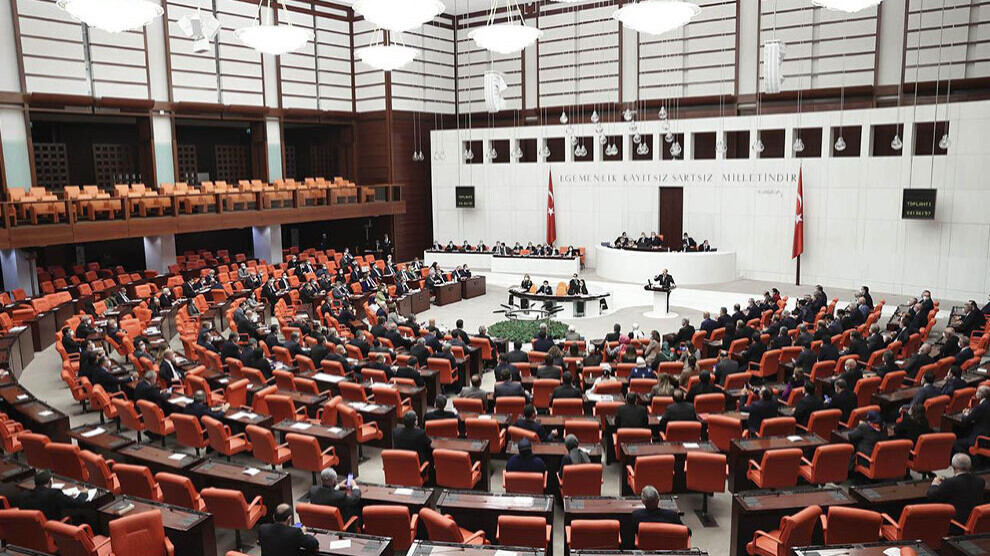Turkish Parliament passes NGO law
The draft law on NGO regulation has been passed in the Turkish parliament. This marks the beginning of the planned dismantling of civil society.
The draft law on NGO regulation has been passed in the Turkish parliament. This marks the beginning of the planned dismantling of civil society.

The law regulating civil society organizations has been passed in the Turkish National Assembly. None of the amendments proposed by the opposition has been accepted. The Peoples' Democratic Party (HDP) had declared the bill unconstitutional and called it a "dismantling of civil society."
The bill is actually about implementing UN Security Council decisions to curb the financing and proliferation of weapons. However, the law is being misappropriated, as most of its provisions grant the Interior Ministry and the president powers to regulate independent groups. Experts have been warning against this legislative initiative since the arrest of cultural promoter and civil rights activist Osman Kavala.
The law gives the Ministry of the Interior the right to suspend a board member of an association or foundation from his or her position if the person is indicted on terrorism charges, and to appoint a trustee. In addition, activities of the entire organization can be suspended and funds confiscated pending a court decision in the case. The draft initially stated that suspicion or police or prosecutorial investigation of a group member would suffice. In the run-up to the vote, the governing coalition itself introduced an amendment. In fact, however, this wording does not change anything, since the Turkish law enforcement agencies work like an assembly line when it comes to politically persecuted persons under the guise of fighting terrorism.
HDP deputy for the province of Ağrı, Abdullah Koç, pointed out during the debate in parliament that the proposed law was a serious encroachment on freedom of association and a "coup against civil society". Utku Çakırözer of the CHP drew parallels with the trusteeship regime in Kurdish city halls, where appointed trustees rule in place of democratically elected mayors. More than 630 non-governmental organizations have signed a declaration against the proposed law, including women's rights associations, refugee assistance organizations, trade unions and professional associations such as the Medical Association.
PACE: chilling effects on civil society
Observers from the Parliamentary Assembly of the Council of Europe (PACE) also expressed concern in advance about new restrictions on civil society.
“This new piece of legislation would be another step towards a more restrictive environment for activities of civil society groups, adding to the new crackdown on civil dissent condemned by the Assembly in its Resolution 2347 (2020) and previous measures introduced in 2020 – including the obligation for NGOs to inform the authorities of the names of their members”, PACE monitors for Turkey Thomas Hammarberg and John Howell and Alexandra Louis, PACE rapporteur on Restrictions on NGO activities in Council of Europe member States, expressed in a joint statement earlier this week.
“We expect the Turkish authorities to refrain from the practice of appointing trustees in the media and municipalities, which result in permanent changes of leadership and policies. This clearly goes against European democratic standards, as highlighted by the Venice Commission in its opinion of June 2020 on the replacement of elected candidates and mayors, the co-rapporteurs for the monitoring of Turkey said.
The PACE rapporteurs urged the Turkish parliament to refrain from any hasty adoption of this legislation and to carefully ensure, during the legislative process, its compliance with Council of Europe standards to avoid considerable damaging and chilling effects on civil society organisations. If adopted, the law in question would jeopardise NGOs and further undermine the foundations of the democratic functioning of Turkish society” the three rapporteurs concluded.